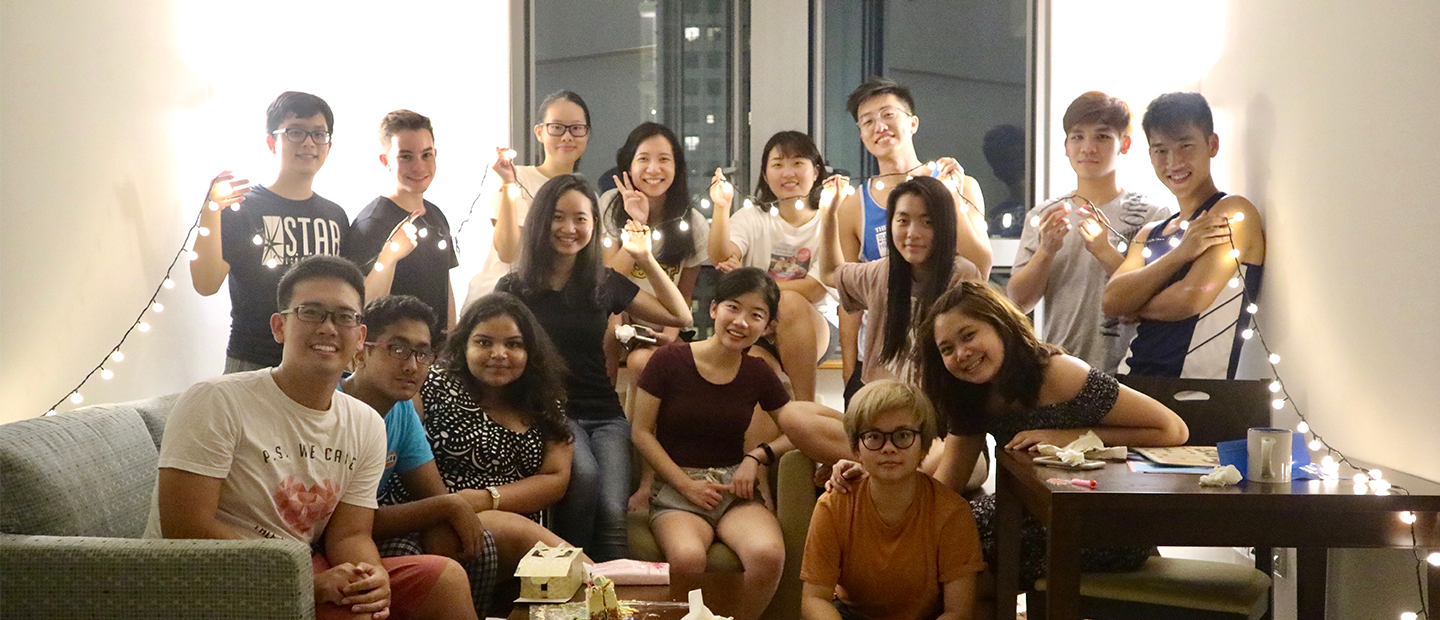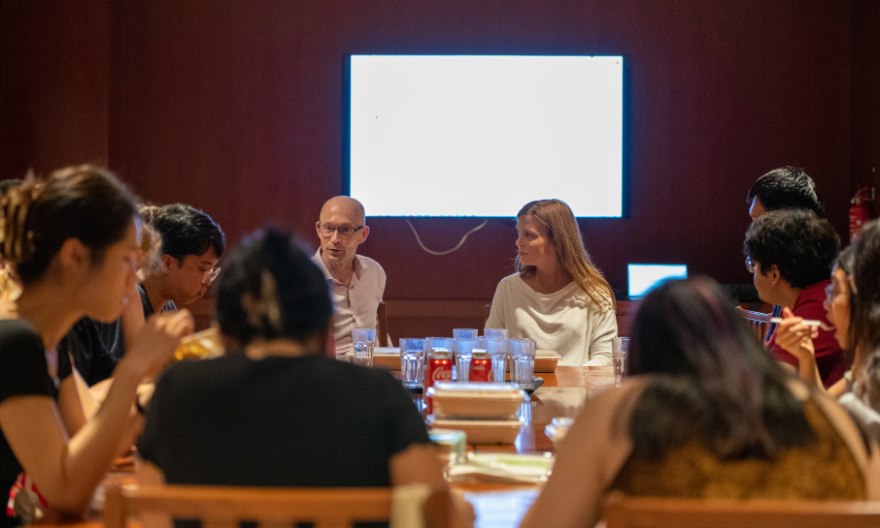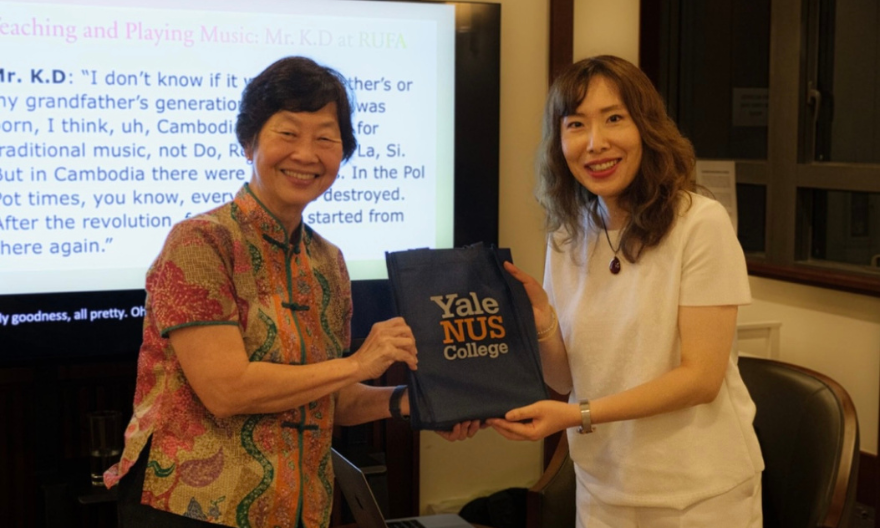Seniors take on mentorship roles to support first-years in residential colleges
 As the new academic year moves into full swing and the Class of 2021 settles into their new home at Yale-NUS, first-year students now have a new source of support in their residential neighbourhood.
As the new academic year moves into full swing and the Class of 2021 settles into their new home at Yale-NUS, first-year students now have a new source of support in their residential neighbourhood.
This year, Yale-NUS College has introduced the Residential College Advisor role, or better known as RCA. Consisting a selection of upper-class students, they provide mentorship, advice and support to their assigned groups of about 12 to 15 first-year students.
The RCA role will complement the current support system for first-year students, previously the main responsibility of Dean’s Fellows. Each residential college will have a mix of RCAs and Dean’s Fellows. While the RCAs focus on helping first-year students, the Dean’s Fellows will provide support to sophomores, juniors and seniors as well as mentor the RCAs.
Evan Ma (Class of 2018) wanted to give back to the first-year students and guide them along, so that they may find their own way to develop individually and academically as well as find a group of people that they can depend on. Likewise, Tan Heng Yeng (Class of 2018), an RCA at Elm College signed on as an RCA because of her love for the Yale-NUS Community.
Having undergone the Common Curriculum lectures and classes, the RCAs are able to give first-hand advice to first-year students. Senior Manager of Residential Life at the Dean of Students Office, Andrew McGeehan, was involved in the development of the new role and explained that RCAs could relate to the student experience at Yale-NUS in a way that other staff, faculty and Dean’s Fellows have not been able to fully undertake. Students of the founding Class of 2017 had originally conceived the idea of the role and they proposed a student-staff position dedicated to first-year support.
The role of the RCA adds to the multi-layered levels of support catered for residential life at Yale-NUS. These range from peer support, Dean’s Fellows, Rectors, Wellness Initiatives and the Counselling Centre. The close-knit on-campus residential community is one of the College’s distinct qualities. Students stay on campus for all four years of their college life in one of three residential colleges: Saga College, Elm College and Cendana College. This residential model creates nested communities in the Yale-NUS tradition of supporting lifelong learning by combining academic, intellectual, social, cultural, athletic and artistic life.
Christopher Tee (Class of 2017), who is a current Dean’s Fellow, was part of the original taskforce to develop the role. He said, “Upper-class students have a wealth of experience to share with the incoming first-year students, and it would also make their last year more fulfilling as they prepare to graduate.” He added that the working taskforce reviewed best practices at other institutions, such as the Freshman Counselors programme at Yale University. They also looked at possible improvements and eventually developed the new role which is tailored to the specific needs of first-year students at Yale-NUS College. In addition to helping and mentoring them, Mr McGeehan noted that the role enables upper-class students to gain a concrete and substantial leadership experience.
Reflecting on her experiences as a RCA so far, Heng Yeng said, “I have learnt more about crisis management, which is not only necessary to the RCA role but relevant to life in general. I’ve also had the opportunity to see and work within a different space in the Yale-NUS student experience, to see how we have designed this to focus on holistic student welfare and growth. I have enjoyed reliving the Yale-NUS first-year experience through my students because it made me realise how much I have grown over the past three years! I hope to be able to replicate this great experience for our first-year students.”
 Evan (seated, left) and his group of first-year students
Evan (seated, left) and his group of first-year students
Echoing her sentiments, Evan said, “Even though I have only been an RCA for slightly over a month, I have learnt how to build a community and balance the opinions and ideas of many students. I have also begun to see the College from a fresh perspective and innovate the way I engage the community. I do hope that I can build a bond with each first-year student and understand who they are as a person, their view of the College and how they plan to spend their next four years in the community.”




